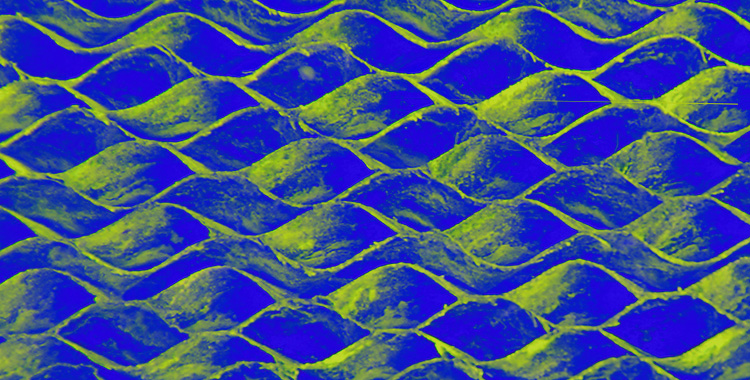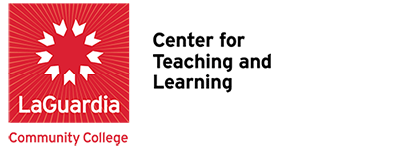Growing Access, Awareness, and Universal Design at LaGuardia: Spring 2022 Update

Providing all our students with access to the materials they need to learn sounds like something we’re already doing, yet this is not always the case. As noted recently in our Middle States Self Study, we do need to grow in this area.
The accessibility of learning materials— readings, websites, presentations, events, etc.,— is a legal obligation. Just as importantly, ensuring access is a moral and ethical commitment, and an issue of social justice. Many of us who design educational materials are struggling to figure out how to provide this access, and the CTL is increasingly providing support for these efforts. Due to barriers such as inaccurate video captions, lack of access for screen readers, and other related issues, there is growing interest and engagement among LaGuardia faculty and staff about how to make learning materials available for all learners, regardless of their dis/abilities.
Recognizing that inclusion also includes people with disabilities is a crucial part of any discussion of inclusive pedagogies. Full access is a right. “Freedom is a constant struggle,” writes Angela Davis. The battle against oppressive systems, including ableism – which values people who are characterized as “normal” and marginalizes those with disabilities – grows from the work of disabled activists who started standing up for their rights by forming the Crip Justice movement of the 1970’s and onward, and by the Disability Scholarship and research it has inspired.
Under the umbrella of access are several important components:
- Technical access ensures materials are usable for those with limited vision, hearing, mobility, etc.; using clear language and user-friendly design.
- Course content: Cripping* the curriculum means including topics related to disability and bringing up issues relevant to the course content.
- Pedagogical approaches can include Universal Design, originally developed by an architect to provide full access to physical spaces, such as offering students options for participation and demonstrating their knowledge.
Here are some examples of LaGuardia’s work in recent years:
2022: LaGuardia’s Middle States Self-Study Recommendation (Standard 2): LaGuardia should create a Social Equity Plan that establishes a diverse, equitable, and inclusive community in response to student, faculty, and staff feedback, and that addresses Universal Design and/or strategies of accessible design.
2022: CUNY Cripping* the Curriculum Faculty Showcase: a ground-breaking event organized by Dušana Podlucká, Derek Stadler and Priscilla Stadler, with a keynote panel and breakout session facilitators from across CUNY and beyond
2022: Created the CTL’s Access, Ableism, and Universal Design Resource page
2022: CTL invited to participate in the newly-formed college-wide Neurodiversity Committee
2021-22: Workshop Series (two series of three sessions each) in 2021 and 2022
2020-21: Integrated “Access, Ableism & Universal Design” activities in 3 Semester-long CTL Seminars: Hybrid/Online: Women, Gender, and Sexuality (2020); Diversity, Equity, and Inclusion (2021)
2019 – 2023: Semester-long Seminars Access and Equity: Fall 2019, Spring 2023
2018 – present: Access, Ableism and UD presentations throughout the college and CUNY, including for LaGuardia’s Chairpersons and Provost, Social Science Department, Opening Sessions, CUNY Accessibility Conference; CUNY’s Innovative Teaching Academy
2017 – present: Make It Accessible hands-on workshops (5) facilitated for: the campus community, the Student Technology Mentors from 2017 – 2022
2017-18: Designing for All (D4A) project. A game-changing collaboration that inspired much of the CTL’s current work. Funded by CUNY, D4A included 5 student leaders, 5 faculty and several staff members working together to develop projects; to learn more from students, we also conducted an in-depth student survey (n=564) about challenges and obstacles they face participating in class and coming to campus. Team members presented at LaGuardia’s Faculty Opening Sessions, Social Science Student Conference, and the CUNY Accessibility Conference.
2018: CUNY CTL’s Council Retreat and Study Day: Planned and implemented programming on Building Accessibility at CUNY for the day-long gathering of CUNY’s Centers for Teaching and Learning multi-campus network
Many thanks to all who have contributed to building the movement for Access/ability at the college, especially our colleagues from the Office of Accessibility, the CTL, Project REACH, CUNY LEADS, the students who participated in D4A, and the many faculty and staff who are so committed to learning about and doing this work.
*The reference to the historically derogatory term “cripple” is intentional. It draws on Crip Theory and the Crip Justice movement, which posit disability as a valuable identity and challenge the traditional understanding of disability as tragic and undesirable. Cripping points to the systemic exclusion of disabled people, especially those who are of color, members of LGBTQ+ community, linguistically diverse speakers, and those with other intersecting identities.



